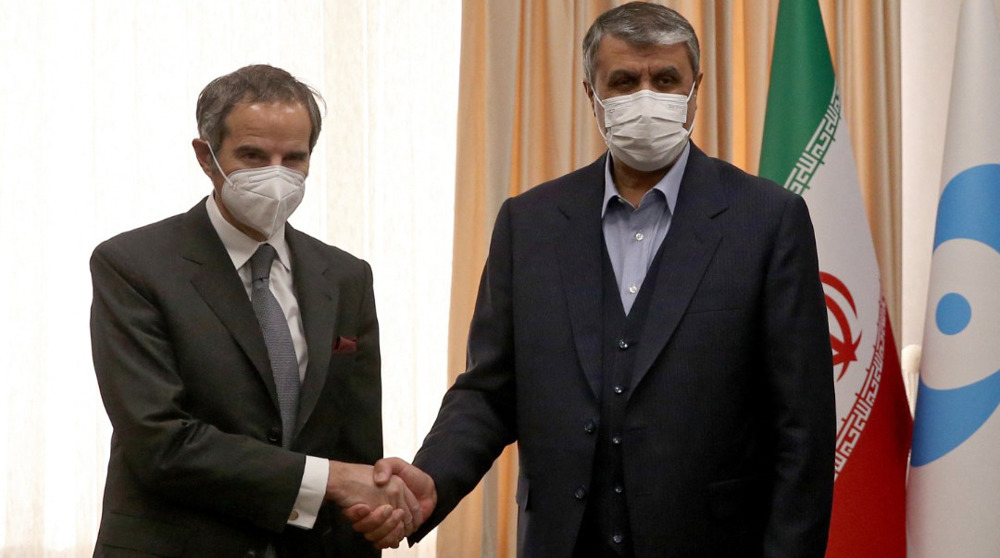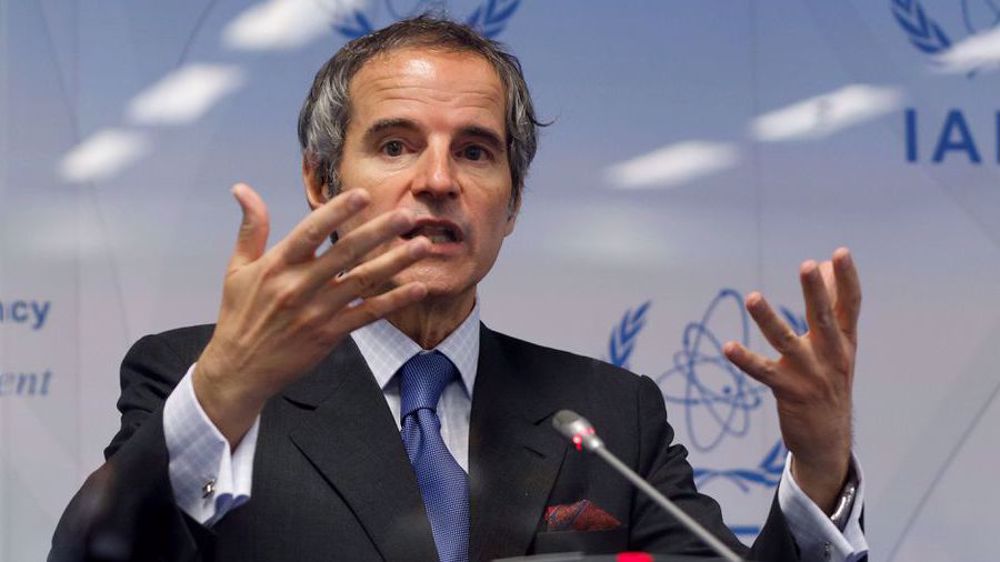IAEA chief vows efforts to narrow gaps with Iran as Vienna talks on revival of JCPOA continue
Director General of the International Atomic Energy Agency (IAEA) Rafael Mariano Grossi says the UN nuclear watchdog will try to narrow the gaps with Iran as diplomatic efforts to revive the 2015 deal continue in the Austrian capital of Vienna.
Speaking after a meeting of the IAEA’s Board of Governors in Vienna on Monday, he added that the agency will continue to verify Iran’s compliance with the safeguards issues.
He added that the IAEA team is preparing for huge verification work in Iran and will continue monitoring activities in the country whether an agreement is reached between Tehran and the P4+1 group of countries on the revival of the deal, officially known as the Joint Comprehensive Plan of Action (JCPOA), in Vienna or not.
In a joint statement issued at the end of Grossi’s visit to Tehran on Saturday, Iran and the IAEA stressed the importance of accelerating and strengthening cooperation and dialogue to resolve some of the remaining issues between the two sides.
Speaking in a joint news conference with the UN nuclear chief in Tehran on Saturday, head of the Atomic Energy Organization of Iran (AEOI) Mohammad Eslami said the two sides had come to the conclusion that some documents, which need to be exchanged between them, should be exchanged by June 21.
He added that Iran and the UN nuclear agency emphasized that the remaining issues between the two sides should be resolved "within the framework of its own regulations and with no political influence, lobbying or interference that can affect the agency's decisions on its conduct towards and its interactions with Iran."
Earlier on Monday, Grossi made a statement before the Board of Governors of the IAEA about the progress so far made on the clarification of the outstanding safeguards issues with Iran.
“...during my visit to Tehran on Saturday and after constructive talks, Vice-President of Iran and head of the Atomic Energy Organization of Iran, Mohammad Eslami, and I were able to agree a series of actions that will be guiding our work,” he said.
Grossi added that there is still “a lot of work ahead of us and we have already started.”
In another part of his statement, the IAEA head said, “Following constructive consultations with Vice-President Eslami on 15 December 2021, new terms were agreed in relation to the agency’s monitoring and surveillance equipment under the JCPOA.”
However, he added that “the repeated prolongation of the agreement I reached with Iran in February last year, which has now been in place for over one year, will pose a significant challenge to the agency’s ability to restore continuity of knowledge, which has been widely recognized as essential in relation to a return to the JCPOA.”
Grossi noted that the agency still awaits to receive “from Iran by 20 March written explanations, including related supporting documents, to the questions raised by the agency and not yet been addressed by Iran, on the issues related to three particular locations.”
The IAEA certified Iran’s compliance with the 2015 Iran deal 15 times until 2019, when the country began to suspend some of its nuclear obligations in a legally retaliatory move, a year after Washington unilaterally left the deal.
After its exit, Washington returned the sanctions that had been lifted under the deal. Washington’s European allies in the deal have been toeing the sanctions line closely by ending their trade activities with Iran.
Hamas and Islamic Jihad delegations meet in Doha
UN rapporteur: Israel engaged in 'ethnic cleansing' in West Bank
French MPs adopt resolution, calling for seizure of Russian assets
Israel jets bomb Damascus outskirts as tanks advance in Quneitra
UN Security Council meeting on Iran ‘blatant political maneuver’: Envoy
US imposes new sanctions day after Trump's letter delivered to Iran
US activists denounce Trump for using 'Palestinian' as slur
Unilateral sanctions hinder Iranian women’s empowerment, prosperity: Experts











 This makes it easy to access the Press TV website
This makes it easy to access the Press TV website